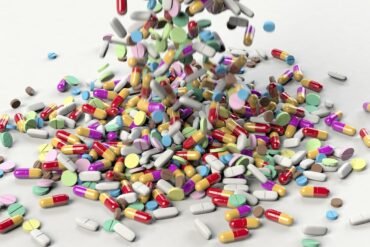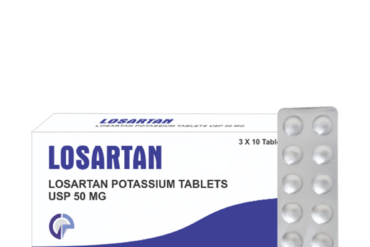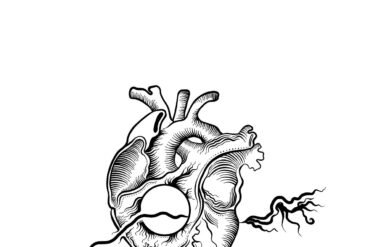The Connection Between Medications and Liver Health

Table of Contents
- Understanding Liver Functions
- Common Medications That Affect the Liver
- Risks and Side Effects
- Maintaining Liver Health: Tips and Suggestions
- Importance of Regular Liver Check
- ups
Common Medications That Affect the Liver
When it comes to liver health, it’s important to be aware of the potential impact that certain medications can have on this vital organ. While medications can provide numerous benefits for various health conditions, some may also pose a risk to the liver. Understanding the potential risks associated with certain medications can help individuals make informed decisions about their health.
Here are some common medications known to affect the liver:
- Acetaminophen: This widely used over-the-counter pain reliever, when taken in high doses or combined with alcohol, can cause liver damage or even lead to acute liver failure.
- Non-Steroidal Anti-Inflammatory Drugs (NSAIDs): Commonly used to reduce pain and inflammation, NSAIDs like ibuprofen and naproxen can contribute to liver damage if taken in high doses or for a prolonged period.
- Statins: These medications are prescribed to help lower cholesterol levels. While generally safe, statins can occasionally lead to liver inflammation or abnormal liver function.
- Antibiotics: Certain antibiotics, such as amoxicillin, clavulanic acid, and erythromycin, can cause liver damage in some individuals. It is crucial to follow the prescribed dosage and duration to minimize this risk.
- Antidepressants: Some antidepressant medications, including selective serotonin reuptake inhibitors (SSRIs) and tricyclic antidepressants, may have hepatotoxic effects and contribute to liver damage in rare cases.
It’s important to note that not everyone experiences liver-related side effects when taking these medications, and the severity can vary greatly. Regular monitoring of liver function and discussing any concerns with a healthcare professional is essential for individuals taking these medications.
To minimize the potential risks associated with medications and liver health, it is crucial to:
- Follow prescribed dosages and recommended durations of use.
- Avoid combining medications with alcohol, unless advised otherwise by a healthcare professional.
- Inform healthcare providers about any pre-existing liver conditions or other medications being taken.
- Opt for regular check-ups and liver function tests as recommended by a healthcare professional.
By being aware of the medications that can affect the liver and taking appropriate precautions, individuals can help maintain liver health while still benefiting from necessary medications. Remember, always consult a healthcare professional for personalized advice regarding medication use and potential liver-related risks.
Risks and Side Effects
While medications play a vital role in our health, it is crucial to be aware of the potential risks and side effects they pose to our liver. Here are some important points to consider:
- Liver Toxicity: Certain medications can have hepatotoxic effects, meaning they can cause damage to the liver cells. This can lead to inflammation, impaired liver function, and may even result in liver failure.
- Drug-Induced Hepatitis: Some medications can trigger drug-induced hepatitis, which is characterized by liver inflammation. Symptoms may include jaundice, abdominal pain, and a general feeling of malaise. It is important to report any symptoms to a healthcare professional immediately.
- Interaction with Other Medications: Combining certain medications can increase the risk of liver damage. It is necessary to inform your healthcare provider about all the medications you are taking, including over-the-counter drugs, supplements, and herbal remedies.
- Alcohol and Medications: Alcohol consumption can exacerbate the hepatotoxic effects of medications. It is vital to avoid alcohol when taking medications that can impact liver health.
- Individual Susceptibility: Each person reacts differently to medications. Some individuals may have a higher risk of experiencing adverse reactions to certain drugs, including liver-related complications. Genetic factors, underlying liver conditions, and pre-existing health issues can contribute to this susceptibility.
- Regular Monitoring: If you are on long-term medication, your healthcare provider may recommend regular liver function tests to monitor the health of your liver. These tests help identify any potential drug-induced liver injury at an early stage.
- Reporting Side Effects: If you experience any unusual symptoms while taking medication, such as unexplained fatigue, nausea, or right upper abdominal pain, it is crucial to promptly inform your healthcare provider. Early detection and intervention can prevent further liver damage.
- Alternative Treatments: In some cases, alternative treatments with reduced risk to liver health may be available. Consult with your healthcare provider about potential alternatives or adjustments to your current medication regimen.
Understanding the risks and side effects associated with medications and their impact on liver health is vital for optimal wellness. Always ensure open communication with your healthcare provider to make informed decisions regarding your treatment plan.
The Connection Between Medications and Liver Health
Keeping your liver in good health is crucial for overall well-being. Many factors can affect liver health, including the medications we take. In this article, we will explore the connection between medications and liver health and provide tips and suggestions to maintain a healthy liver.
1. Understand the impact: It’s important to be aware that certain medications can potentially harm the liver. Prescription drugs, over-the-counter medications, and herbal supplements can all have an impact. Common medications, such as acetaminophen, nonsteroidal anti-inflammatory drugs (NSAIDs), statins, and some antibiotics, may carry a risk of liver damage if not used appropriately.
2. Follow dosage instructions: Always follow the recommended dosage instructions provided by your healthcare professional or as stated on the medication packaging. Avoid exceeding the recommended dosage, as this can strain your liver and increase the risk of liver injury.
3. Take medication with food: Some medications are better absorbed when taken with food. This can also help prevent potential irritation to the liver. Check the instructions or consult your doctor or pharmacist to determine if you should take your medication with a meal.
4. Be cautious with alcohol: Alcohol is known to put stress on the liver. When combined with certain medications, it can lead to severe liver damage. It is advised to avoid or limit alcohol consumption, especially when taking medications that can negatively affect liver health.
5. Regular liver function tests: If you are taking long-term medications that may impact your liver, it is advisable to undergo regular liver function tests. These tests help detect any signs of liver damage early on, allowing for prompt intervention and management.
6. Consult your healthcare provider: Always consult your doctor or pharmacist about the potential effects of any medication on liver health. They can provide guidance on the safest options for you, particularly if you have pre-existing liver conditions.
- Inform your doctor: When visiting a healthcare provider, make sure to provide a complete medical history, including any liver-related issues and a list of all the medications you are taking, including supplements and over-the-counter drugs.
- Explore alternative options: Your healthcare professional may be able to suggest alternative medications or treatments that have a lower risk of liver damage.
Remember, maintaining liver health is essential to your overall well-being. By understanding the connection between medications and liver health, following the tips mentioned above, and seeking guidance from healthcare professionals, you can reduce the risk of liver damage and ensure a healthy liver.
Importance of Regular Liver Check
Understanding the connection between medications and liver health is crucial for maintaining overall well-being. The liver is a vital organ responsible for numerous essential functions, including processing medications. However, certain medications can pose a risk to liver health, making regular liver checks essential. Here’s why:
- Detecting Medication-Related Liver Damage: Regular liver check-ups enable early detection of any medication-related liver damage. Some medications can cause hepatotoxicity, a condition in which liver cells are damaged or destroyed. By monitoring the liver regularly, any signs of potential damage can be identified promptly, allowing for necessary interventions to prevent further complications.
- Adjusting Medications: Liver checks help determine the effect of medications on liver function. If your liver is already compromised due to a pre-existing condition or medication, it may struggle to metabolize certain drugs. By monitoring the liver, healthcare professionals can make informed decisions about adjusting medication dosages or finding alternatives to minimize the strain on the liver.
- Identifying Drug-Induced Liver Injury: Some medications can cause drug-induced liver injury, leading to inflammation, liver cell death, or impairment of liver function. Regular liver checks aid in identifying any signs of liver injury caused by medications, allowing for timely intervention.
- Promoting Overall Health: Liver health is closely linked to overall well-being. By maintaining a healthy liver, individuals can optimize their body’s ability to eliminate toxins, produce essential proteins, and metabolize medications effectively. Regular liver checks provide valuable insights into the health of this vital organ, enabling necessary lifestyle adjustments or medication changes to support overall health.
Regular liver checks serve as an important preventive measure in assessing the impact of medications on liver health. Consult with your healthcare provider about the frequency and necessity of liver checks based on your medication use and individual health conditions. Remember, a healthy liver leads to a healthier you!
The Connection Between Medications and Liver Health
Our liver plays a crucial role in filtering and processing toxins from medications, making it an essential organ for overall health. However, many medications can have adverse effects on liver function, highlighting the importance of understanding the connection between medications and liver health.
Here are some key points to consider:
- Medication-Induced Liver Injury (MILI): Certain medications, when metabolized by the liver, can cause liver injury. This is known as Medication-Induced Liver Injury (MILI) and can range from mild liver enzyme elevation to severe hepatotoxicity, or even liver failure in rare cases.
- Types of Medications: Several types of medications have been linked to liver damage. These include: over-the-counter pain relievers such as acetaminophen, nonsteroidal anti-inflammatory drugs (NSAIDs), cholesterol-lowering statins, antifungal drugs, antibiotics, and some antidepressants.
- Individual Variability: Each person may react differently to medications. Some individuals have a genetic predisposition that makes them more susceptible to drug-induced liver injury. Additionally, factors like age, pre-existing liver diseases, alcohol consumption, and other medications can increase the risk.
- Warning Signs: It is important to be aware of the warning signs that may indicate liver problems related to medications. These can include jaundice (yellowing of the skin and eyes), dark urine, pale stools, abdominal pain, and unexplained fatigue. If experiencing any of these symptoms, it is crucial to seek medical attention immediately.
- Prevention and Precautions: To protect liver health when taking medications, it is essential to follow proper dosage instructions and avoid exceeding recommended limits. Individuals with underlying liver conditions should consult their healthcare provider before starting any new medications. Additionally, alcohol consumption should be limited or avoided when taking medications known to affect the liver.
In conclusion, it is important to be aware of the potential impact of medications on liver health. By understanding the connection between medications and liver function, individuals can make informed decisions and take necessary precautions to protect their liver health.


























